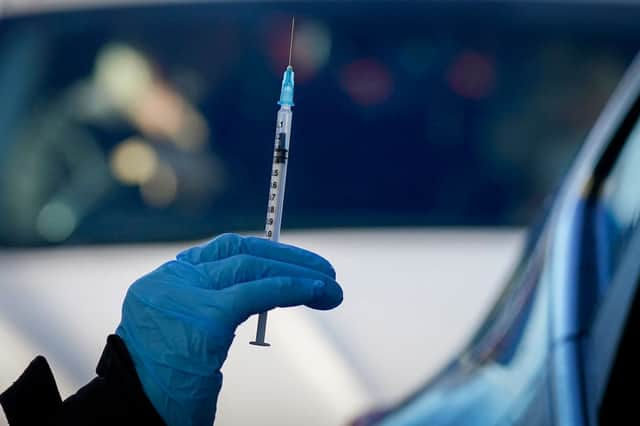Pfizer says vaccine protects against new Covid-19 mutant strains spreading across the UK


The Covid-19 vaccine from Pfizer and BioNTech appears to effectively protect against mutant strains of the virus, new research suggests.
The findings indicate that the vaccine will work against the two mutant variants of the virus that are currently causing rapid spread across the UK, forcing lockdown restrictions to be significantly tightened.
Advertisement
Advertisement
‘Neutralising levels of antibodies’
The pharmaceutical giant and researchers from the University of Texas Medical Branch carried out lab tests on the strains, one of which was found in the UK while the other originated in South Africa.
In the new study, which has not yet been peer-reviewed, blood samples were taken from 20 people who received the Pfizer vaccine.
Laboratory studies found that the samples had neutralising levels of antibodies which appeared to work against N501Y in the new strains.
However, one of the mutations in the South Africa variant, named E484K, has not yet been studied.
Advertisement
Advertisement
A third lockdown was imposed in England on Wednesday (6 January) in response to the rapid spread of the mutated strain found in the South East, which has now spread more widely across the UK.
Pfizer has now tested 16 different mutations in the strains and found that none of them have had any impact on how the vaccine works. However, further studies are planned on other mutations.
The UK’s chief scientific adviser Sir Patrick Vallance said it could be the case that the new strains reduce the efficacy of vaccines, but more studies were needed.
Eleanor Riley, professor of immunology and infectious disease at the University of Edinburgh, said: “So far, so good. There will be other new mutants and we will need to monitor the situation carefully by repeating this type of study on new variants as they appear. It may be necessary to tweak the vaccine over time.
Advertisement
Advertisement
“To inject a little optimism into the discussion: there is a limit to the number of mutations the virus can accumulate and still be able to bind to the receptor (which allows the virus to infect people).”
Oxford rollout now underway
The rollout of the Oxford/AstraZeneca vaccine is now underway after being approved for use on 30 December.
It began its rollout to English hospitals on Monday (4 January) as part of the NHS’s vaccination programme, and reached GPs in England on Thursday (7 January).
Deliveries are now being made to hundreds of local vaccination centres across the country and it is hoped that around 1,000 sites will be delivering vaccines by the end of the week.
Advertisement
Advertisement
Seven new mass vaccination hubs are also due to open across England next week, at venues based in London, Newcastle, Manchester, Birmingham, Bristol, Surrey and Stevenage.
Around 1.3 million people have now received either the Pfizer/BioNTech or Oxford/AstraZeneca jab in the UK and Prime Minister Boris Johnson has said it is the government’s aim to vaccinate 13 million people in the top four priority groups by mid-February. This amounts to a goal of two million vaccinations per week.
Ministers have also decided, in a move queried by the World Health Organisation (WHO), to administer the first jab to as many priority patients as possible by delaying a second shot.The second jab will now be given up to 12 weeks later to prevent current supplies from being held back.